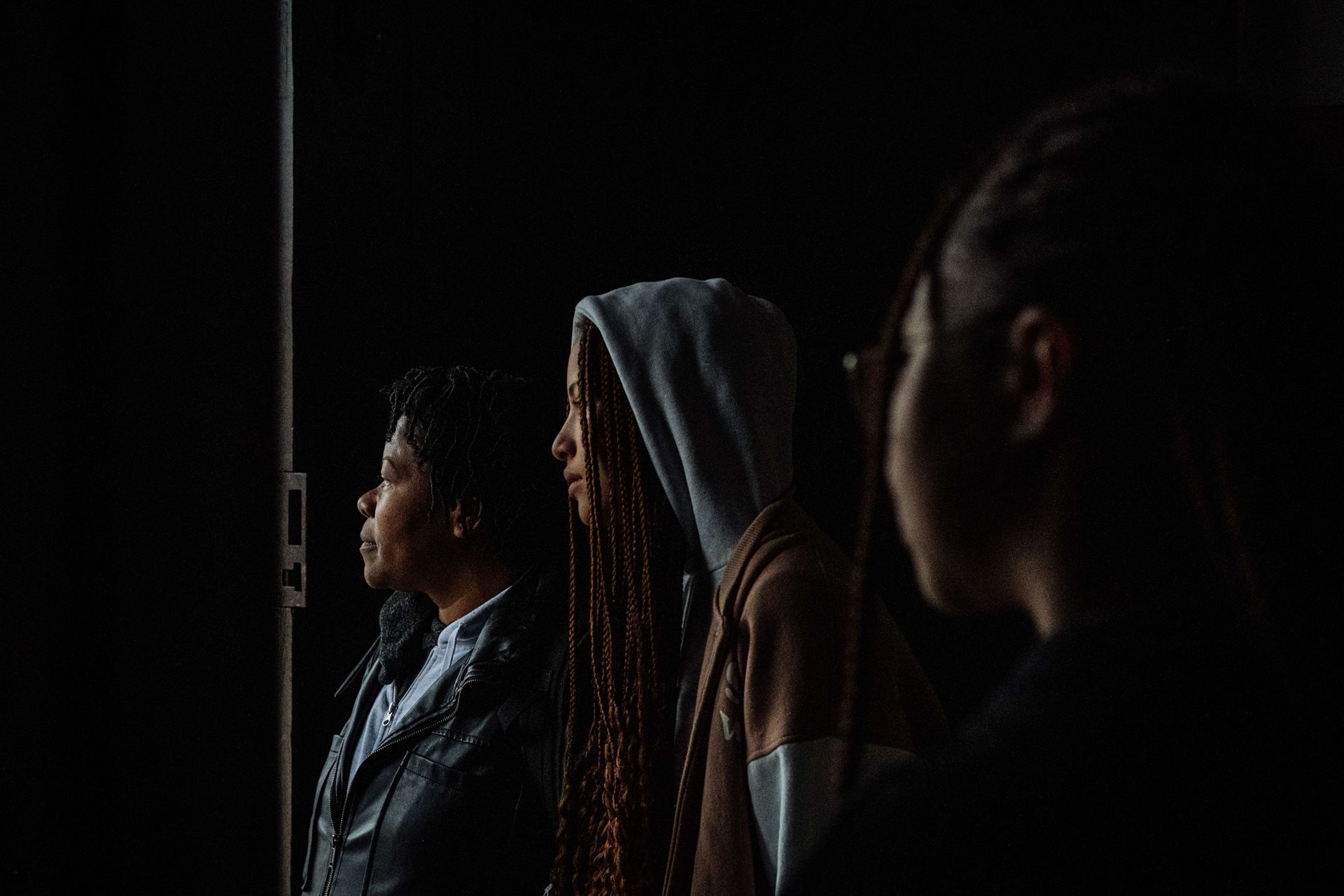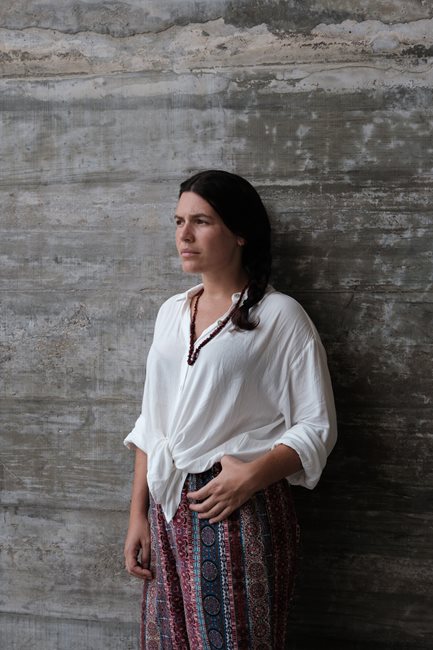Ana Maria’s grandchildren Leonor and Beatriz wait with her for the rain to stop, in a church doorway after mass, in Fafe, Portugal, the town where they live, 300 kilometers from Lisbon.
Ana Maria Jeremias’ life as a carer and domestic worker in Portugal echoes the experience of countless women around Europe – women who make a vital contribution to people’s lives and national economies.
Trafficked from Angola to Portugal by a Portuguese family when she was nine, under false promises of education, Ana Maria was forced to adopt a new name and a new birthdate, and to work in domestic service. She has since spent more than four decades working in other people’s homes; in her own words, she has spent her entire life cleaning. In Angola, Ana Maria was called Utima, an Umbundu-language word meaning “heart”. When she was 21, Ana Maria managed to free herself from the family that brought her to Portugal, abused, and discriminated against her. Eventually, she was able to buy a home of her own in Rio de Mouro, a neighborhood on the outskirts of Lisbon, from where she commutes to work.
Labor immigration to Portugal began at the end of the 1960s, with workers initially coming from former colonies in Africa, and later, in the 1990s, from Brazil and Eastern Europe. Generally, men found jobs in construction and women in domestic service. The nature of informal work makes estimates of numbers difficult, though a Eurofound study reports 144,000 domestic workers in 2010, with 98.3% of them women. In 2020, the International Labour Organization found that migrants in Portugal receive a salary almost 29% lower than that of Portuguese nationals.
By focusing on Ana Maria's story, the photographer aims to honor her life, and that of so many women like her, to encourage reflection on privilege, and to amplify voices that are often not heard. She titled her work MARIA, because Maria is the name of the photographer; “Maria” is a nickname frequently given to domestic workers in Portugal, and the most common women’s name in Portugal. She felt that using the title MARIA was a way of making the work a homage to all women.
Are you a photographer and/or passionate about press freedom? Sign up for our newsletter to stay updated on our annual contest and to hear about exhibitions near you.

